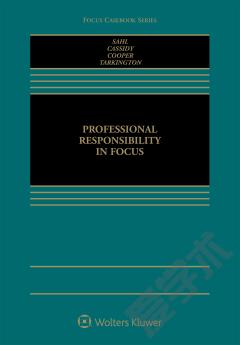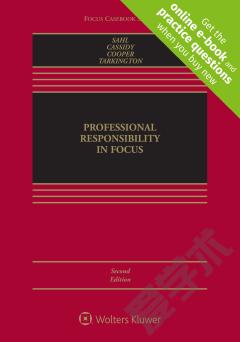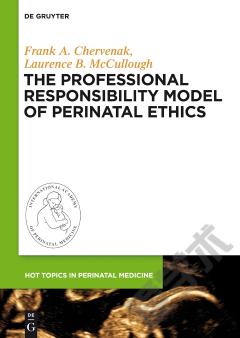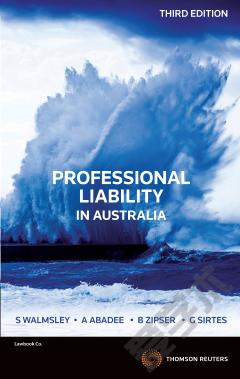Professional Responsibility in Focus
This first-edition casebook, part of our expanding Focus series, offers a comprehensive, practice-oriented approach to the legal and ethical rules governing lawyers and judges. By providing real-world scenarios throughout the text, this casebook gives students numerous opportunities to apply what they learn and solidify their understanding of important concepts. Clear explanatory text, case previews, and case follow-ups further clarify the rules and aid in student understanding. The casebook begins with an introduction to the legal profession, and follows with concise, well-written chapters on the attorney-client relationship, covering competence, confidentiality, and conflicts of interest; discussion of the lawyer as advocate; special issues in criminal practice; coverage of delivery of legal services and access to justice, and a final chapter on judicial ethics. The first chapter on moral responsibility of lawyers helps situate and contextualize the rule-centric discussion of legal ethics that follows, by inviting students to appreciate the various roles that lawyers play in the legal system, their responsibilities to multiple stakeholders, and competing values at play in professional regulation. Key Benefits: Key Concepts at the beginning of each chapter. Highlighted cases introduced with a Case Preview. Post-Case Follow-ups expand on the holding in the case. Real Life Applications present opportunities to challenge students to apply concepts covered in the case to realistic hypothetical cases. Several features at the end of each chapter to help students better understand the material: Applying the Rules, Summary, Professional Responsibility in Practice The experiential approach of the Focus series provides more opportunities for critical analysis and application of concepts covered in the chapters. Extensive discussions and materials exploring the impact of technology on the delivery of legal services and the ways in which technological changes impact lawyers professional duties. The chapter on access to justice and pro bono services takes a comprehensive look at the sources of the justice gap and proposed solutions.
{{comment.content}}








 京公网安备 11010802027623号
京公网安备 11010802027623号